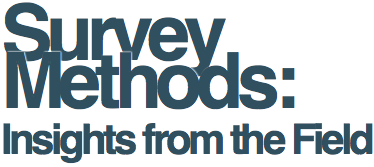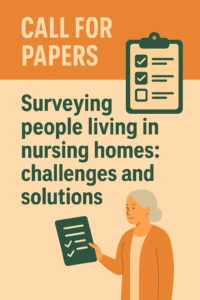An overview of the scales’ characteristics for 10 well-established face-to-face social science surveys
Many studies were conducted to help researchers designing high quality surveys. Testing theoretical considerations, these studies create empirical evidence that should serve for guidance. However, we often come across surveys that do not follow those literature recommendations. While this might be due to the trade-offs between data quality, comparability (across time or countries), and costs, in this paper, we provide information about the scales used in practice by 10 well-established social science face-to-face surveys. We found that: 1) agree/disagree scales are used in all 10 surveys but in a maximum of 15.7% of the items; 2) most attitude or belief …






